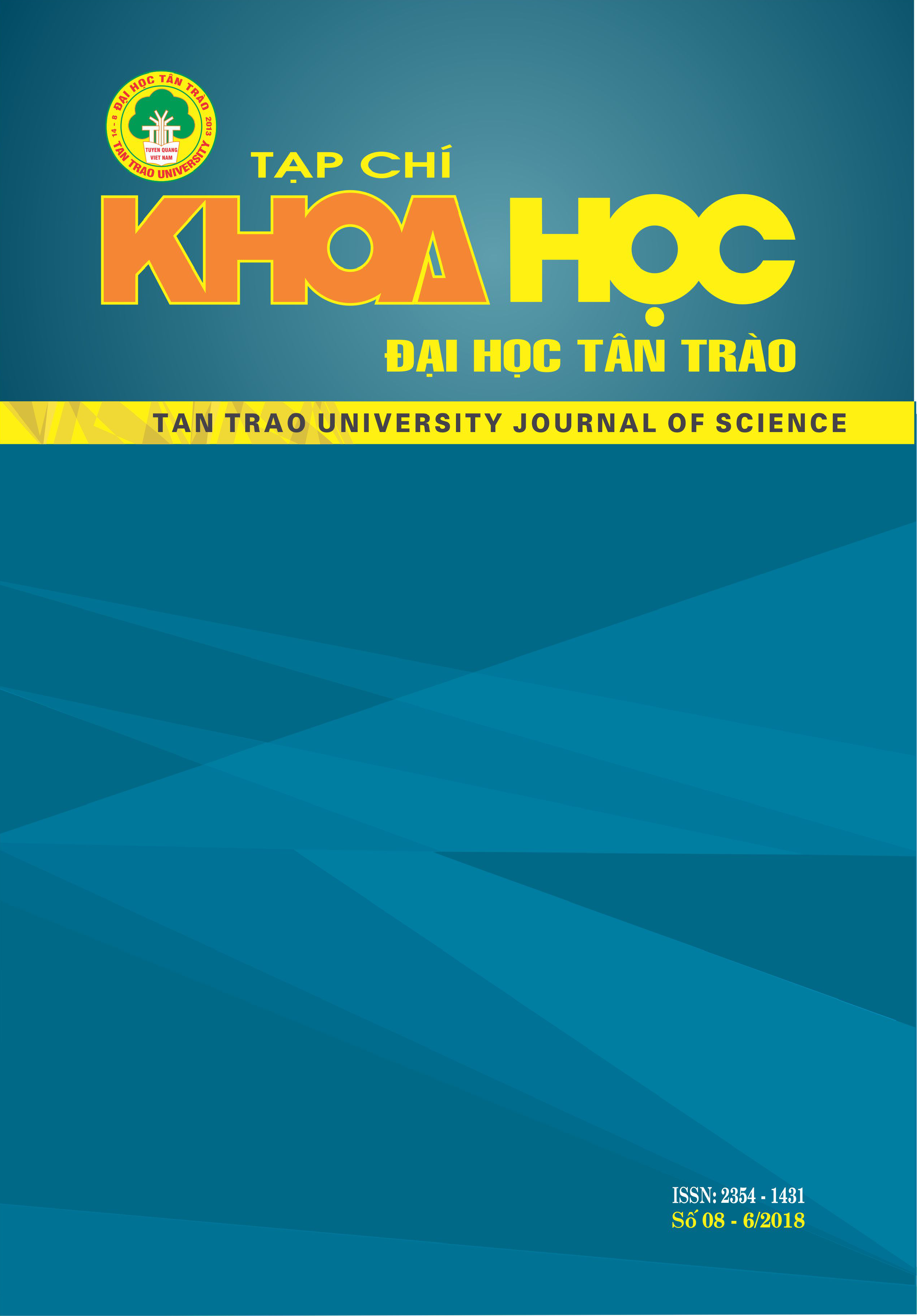Kỹ năng phát triển chương trình đào tạo cho giảng viên đại học ở việt nam trong thời đại cách mạng công nghiệp 4.0
DOI:
https://doi.org/10.51453/2354-1431/2018/183Từ khóa:
Kỹ năng, công nghiệp 4.0, giảng viên, đại há»c, phát triển chÆ°Æ¡ng trình.Tóm tắt
Cuộc cách mạng công nghiệp 4.0 có những ảnh hưởng lớn đến nền giáo dục của các nước trên thế giới. Đòi hỏi các trường đại học, cao đẳng phải nhanh chóng nắm bắt những cơ hội và nhận ra thách thức để bắt kịp với xu thế phát triển của thời đại. Một trong những thách thức lớn nhất mà các trường đại học, cao đẳng phải vượt qua là sự phát triển chương trình đào tạo sao cho đón đầu được xu hướng phát triển của thực tiễn. Nhiệm vụ này khng chỉ là của các chuyên gia giáo dục, các nhà quản lý mà còn là của chnh các giảng viên. Với mục đch nghiên cứu lý thuyết, bài báo đã chỉ ra quan điểm, cách tiếp cận và một số kỹ năng phát triển chương trình đào tạo cho giảng viên đại học trong thời đại cng nghiệp 4.0.
Tải xuống
Tài liệu tham khảo
1. Bộ Giáo dục & Đào tạo (2017), Tài liệu bồi dưỡng theo chuẩn chức danh nghề nghiệp giảng viên chính hạng II,NxbGiáo dục Việt Nam;
2. Bộ Giáo dục & Đào tạo (2016), Thông tư số: 04/2016/TT-BGDÐT ngày 14 tháng 3 năm 2016 quy định về tiêu chuẩn đánh giá chất lượng chương trình đào tạo các trình độ của giáo dục đại học;
3. Bộ Giáo dục & Đào tạo (2015), Những vấn đề chung về phát triển chương trình đào tạo giáo viên, Hà Nội;
4. Charupat Bunsong (2013), Phát triển chỉ số năng lực lãnh đạo giảng dạy của tổ trưởng bộ môn tiếng Thái trong trường PTTH, trực thuộc văn phòng giáo dục Phổ thông vùng Đông Bắc. Luận án tiến sĩ QLGD. Trường ĐH Rajabhat Sakon Nakhon - Thái Lan;
5. Hallinger, P. (1992). “The evolving role of American principals: From managerial to instructional to transformational leader,” Journal of Educational Administration, 30 (3),35-48;
6. Jazzar, Michael and Algozzine, Bob (2007), Keys to Successful 21st Century Educational Leadership,Boston: Pearson Education;
7. Preeyaporn Wonganutarod (2010), Công tác quản lý chuyên môn (Academic Affairs Administration), Bangkok;
8. Rungchatdaporn Wahacha (2009), Quản lý chuyên môn trong trường học bậc cơ sở, Trung tâm SGK trường ĐH Thaksin;
9. Santi Boonphirom (2009), Quản lý chuyên môn, Bangkok; 10. U. S. Department of Education (2005), Leader and leadership process, Boston: Irwin/ McGraw-Hill.
Tải xuống
Đã Xuất bản
Cách trích dẫn
Số
Chuyên mục
Giấy phép

Tác phẩm này được cấp phép theo Giấy phép Quốc tế Creative Commons Attribution-ShareAlike 4.0 .
Bài báo được xuất bản ở Tạp chí Khoa học Đại học Tân Trào được cấp phép theo giấy phép Ghi công - Chia sẻ tương tự 4.0 Quốc tế (CC BY-SA). Theo đó, các tác giả khác có thể sao chép, chuyển đổi hay phân phối lại các bài báo này với mục đích hợp pháp trên mọi phương tiện, với điều kiện họ trích dẫn tác giả, Tạp chí Khoa học Đại học Tân Trào và đường link đến bản quyền; nêu rõ các thay đổi đã thực hiện và các nghiên cứu đăng lại được tiến hành theo cùng một bản quyền.
Bản quyền bài báo thuộc về các tác giả, không hạn chế số lượng. Tạp chí Khoa học Tân Trào được cấp giấy phép không độc quyền để xuất bản bài báo với tư cách nhà xuất bản nguồn, kèm theo quyền thương mại để in các bài báo cung cấp cho các thư viện và cá nhân.
Mặc dù các điều khoản của giấy phép CC BY-SA không dành cho các tác giả (với tư cách là người giữ bản quyền của bài báo, họ không bị hạn chế về quyền hạn), khi gửi bài tới Tạp chí Khoa học Đại học Tân Trào, tác giả cần đáp ứng quyền của độc giả, và cần cấp quyền cho bên thứ 3 sử dụng bài báo của họ trong phạm vi của giấy phép.






